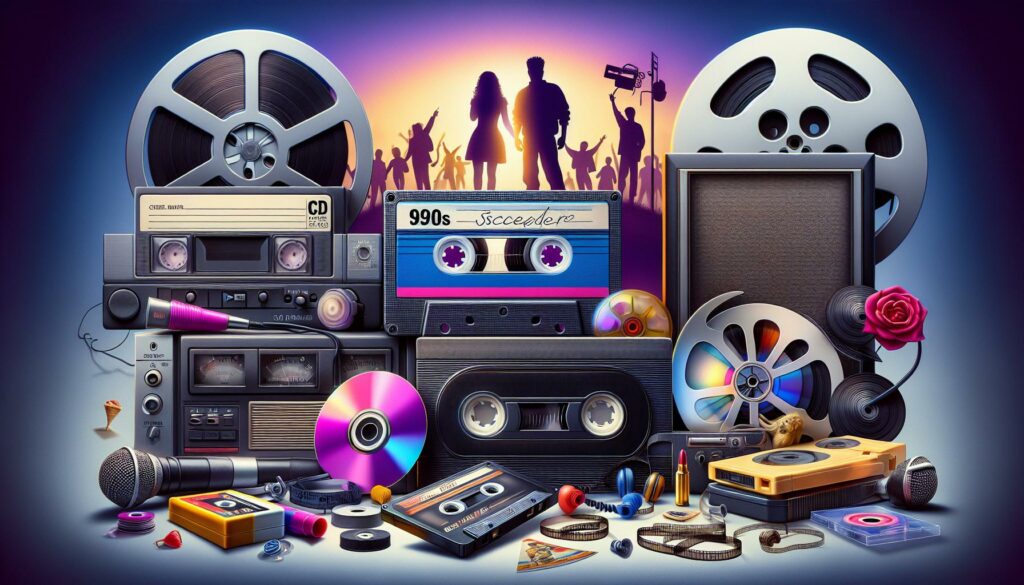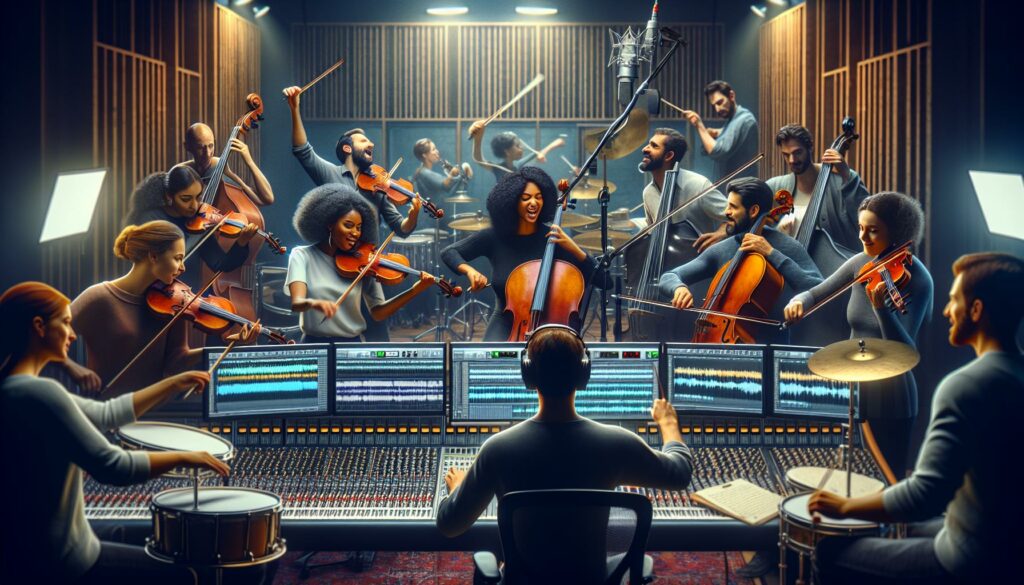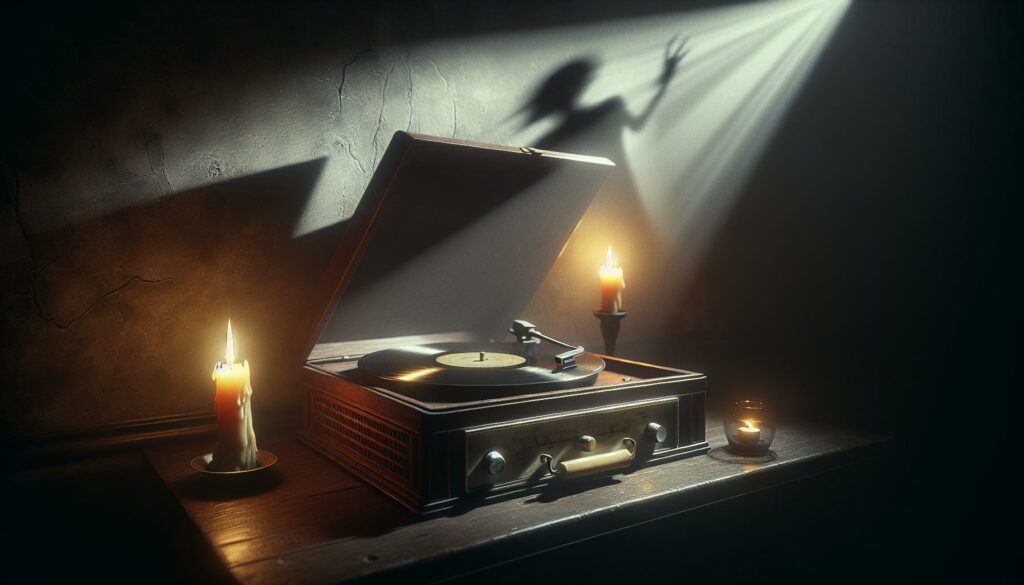As a die-hard music enthusiast I’ve always believed the 90s delivered some of the most iconic movie soundtracks ever created. From grunge-heavy compilations to pop-powered blockbusters these albums didn’t just complement their films – they became cultural phenomena in their own right.
I’ll never forget the first time I heard Whitney Houston’s powerful vocals in The Bodyguard or the way Celine Dion’s “”My Heart Will Go On”” from Titanic dominated radio waves. The 90s weren’t just about mainstream hits though. Underground gems like The Crow soundtrack introduced audiences to alternative rock while Pulp Fiction revived forgotten classics and gave them new life. After spending countless hours revisiting these musical treasures I’m excited to share my top picks that defined this golden era of movie soundtracks.
Key Takeaways
- The 1990s represented a golden age for movie soundtracks, driven by the synergy between record labels and film studios, CD format popularity, and MTV’s influence.
- Blockbuster soundtracks like “”The Bodyguard,”” “”Titanic,”” and “”The Lion King”” achieved unprecedented commercial success, with sales ranging from 15-45 million units worldwide.
- Major soundtracks combined multiple musical approaches: original songs, curated existing hits, and score-song hybrids, creating versatile and commercially successful albums.
- Alternative rock and grunge soundtracks like “”Singles”” and “”The Crow”” captured the era’s zeitgeist while achieving significant commercial success and critical acclaim.
- Pop-focused compilations such as “”Romeo + Juliet”” and “”Clueless”” successfully connected with younger audiences through carefully curated contemporary hits and exclusive recordings.
- Video game soundtracks evolved significantly during this period, with titles like Final Fantasy VII and Sonic the Hedgehog establishing new standards for gaming music.
Best 90s Soundtracks
The 90s marked a transformative period in soundtrack production, combining cutting-edge technology with diverse musical genres. Digital recording advancements enabled producers to create fuller, richer soundscapes while maintaining analog warmth from the 80s.
Three key factors defined this golden era:
- Cross-marketing synergy between record labels and film studios generated unprecedented promotional budgets
- CD format popularity allowed for longer albums with bonus tracks exclusive content
- MTV’s peak influence created a direct pipeline for movie songs to reach mass audiences
The decade introduced a new soundtrack formula that balanced commercial appeal with artistic innovation:
- Original songs written specifically for films (Batman Forever, Space Jam)
- Curated collections of existing hits (Reality Bites, Singles)
- Score-song hybrids featuring both orchestral pieces pop tracks (Romeo + Juliet, The Crow)
This period saw remarkable commercial success:
| Soundtrack | Year | Units Sold (Millions) |
|---|---|---|
| The Bodyguard | 1992 | 45 |
| Titanic | 1997 | 30 |
| Lion King | 1994 | 15 |
| Forrest Gump | 1994 | 12 |
The unique intersection of technological advancement musical diversity studio investment created distinctive sonic identities for films. This era produced soundtracks that transcended their movies to become standalone cultural phenomena, establishing a benchmark for film music that continues to influence modern soundtrack creation.
Iconic Movie Soundtracks That Defined the Decade
The 90s delivered groundbreaking film soundtracks that transformed both the music industry and cinema. Here are three monumental works that shaped the landscape of film music.
Titanic: The Power of Celine Dion
James Horner’s masterful composition for Titanic created an immersive sonic experience, with “”My Heart Will Go On”” becoming its crowning achievement. The soundtrack sold 30 million copies worldwide, making it the best-selling orchestral film soundtrack in history. The Celtic-influenced score blends seamlessly with Celine Dion’s powerful vocals, earning the album 4 Grammy Awards including Album of the Year in 1999.
The Lion King’s Award-Winning Score
Hans Zimmer’s African-inspired orchestration paired with Elton John and Tim Rice’s memorable songs produced a revolutionary animation soundtrack. The album features 5 chart-topping hits:
- “”Circle of Life””
- “”Hakuna Matata””
- “”Can You Feel the Love Tonight””
- “”I Just Can’t Wait to Be King””
- “”Be Prepared””
The soundtrack earned 2 Academy Awards, 3 Grammy Awards, and achieved Diamond certification with over 10 million copies sold in the U.S.
Jurassic Park’s Timeless Orchestration
John Williams crafted a majestic score that elevated the dinosaur spectacle through sophisticated orchestral arrangements. The main theme incorporates:
- Sweeping brass sections
- Complex string arrangements
- Dramatic percussion elements
The soundtrack earned a Grammy for Best Instrumental Composition and remained on the Billboard 200 for 201 consecutive weeks. Its innovative use of leitmotifs established distinct musical identities for different dinosaur species, creating a template for future action-adventure scores.
Revolutionary Alternative and Grunge Soundtracks
Alternative rock defined the 90s cultural zeitgeist through soundtracks that captured raw emotional intensity mixed with mainstream appeal. I’ve identified key compilations that transformed the movie music landscape through their groundbreaking grunge and alternative rock selections.
Singles: The Seattle Sound
The Singles soundtrack encapsulated Seattle’s grunge movement with exclusive tracks from Pearl Jam, Soundgarden, and Alice in Chains. Released in June 1992, the album features Pearl Jam’s “”State of Love and Trust”” and “”Breath,”” recorded specifically for the film. The soundtrack peaked at #7 on the Billboard 200 and achieved double platinum status, selling over 2 million copies. Chris Cornell’s “”Seasons”” marked his first solo recording, while Paul Westerberg’s contributions “”Dyslexic Heart”” and “”Waiting for Somebody”” showcased the post-punk influence on the era.
- The Cure’s “”Burn,”” written exclusively for the film
- Rage Against the Machine’s intense cover of “”Ghostrider””
- Pantera’s aggressive rendition of “”The Badge””
- Helmet’s collaboration with House of Pain on “”Just Another Victim””
| Soundtrack Stats | Singles | The Crow |
|---|---|---|
| Billboard Peak | #7 | #1 |
| Certification | 2x Platinum | 3x Platinum |
| Release Year | 1992 | 1994 |
| Exclusive Tracks | 5 | 8 |
Unforgettable Pop Compilations
The 90s brought dynamic pop soundtracks that captured youth culture through curated compilations of contemporary hits mixed with original recordings. These albums revolutionized the way movies connected with younger audiences through carefully selected pop tracks.
Romeo + Juliet’s Modern Take
Baz Luhrmann’s 1996 adaptation of Romeo + Juliet features a groundbreaking soundtrack that peaked at #2 on the Billboard 200. The album blends alternative rock with orchestral elements, including #1 hits like The Cardigans’ “”Lovefool”” (reached #1 in 3 countries) & Des’ree’s “”Kissing You.”” The compilation sold 3.5 million copies worldwide, featuring exclusive tracks from Radiohead (“”Talk Show Host””) & Garbage (“”#1 Crush””), perfectly matching the film’s contemporary interpretation of Shakespeare’s classic.
Clueless: Valley Girl Anthems
The Clueless soundtrack emerged as a defining teen pop collection in 1995, reaching #21 on Billboard’s Top 200. This compilation captures mid-90s California culture through tracks from:
- Coolio – “”Rollin’ with My Homies”” (exclusive track)
- The Muffs – “”Kids in America”” (reached #7 on Modern Rock Tracks)
- World Party – “”All the Young Dudes”” (new cover version)
- Counting Crows – “”The Ghost in You”” (exclusive track)
- Jill Sobule – “”Supermodel”” (peaked at #67 on Billboard Hot 100)
The album achieved Gold certification with 500,000+ copies sold, establishing itself as a cornerstone of 90s teen movie soundtracks. EMI Records released multiple international versions featuring region-specific bonus tracks, expanding its global impact in the pop music landscape.
Top Video Game Soundtracks of the 90s
The 90s revolutionized video game music through advanced sound chips and CD-quality audio capabilities. Gaming soundtracks evolved from simple 8-bit tunes to orchestral masterpieces that rival film scores.
Final Fantasy VII’s Epic Score
Nobuo Uematsu’s 1997 masterpiece for Final Fantasy VII transformed video game music composition. The soundtrack features 85 original tracks spanning 4 CDs with iconic pieces like “”One-Winged Angel”” integrating full orchestral arrangements with choral elements. The album topped the Japanese Oricon charts selling 150,000 copies in its initial release. Key compositions include:
- “”Aerith’s Theme”” – A melancholic piano piece that became a franchise signature
- “”Main Theme”” – An expansive orchestral track featuring dynamic brass sections
- “”Battle Theme”” – An energetic composition mixing rock elements with symphonic arrangements
- “”Opening – Bombing Mission”” – A tension-building industrial score with mechanical undertones
Sonic the Hedgehog’s Classic Tunes
Masato Nakamura’s compositions for Sonic games defined SEGA’s signature sound in the 90s. The Sonic CD soundtrack (1993) introduced dynamic audio that changed between past present future versions of each stage. Notable tracks include:
- “”Green Hill Zone”” – An upbeat tropical melody with distinct bass lines
- “”Chemical Plant Zone”” – A techno-funk fusion with synthesized beats
- “”Sonic Boom”” – The North American theme song reaching #8 on game music charts
- “”Palmtree Panic”” – Three distinct variations showcasing time-travel mechanics
The soundtrack sold 40,000 copies in Japan with international releases across 12 countries.
The 90s were truly remarkable for soundtracks spanning movies video games and pop culture. I’ve loved diving deep into these incredible musical collections that shaped my generation and continue to influence today’s entertainment.
Whether it’s the powerhouse vocals of Whitney and Celine the grunge-filled Singles soundtrack or the groundbreaking scores of Final Fantasy VII these compilations stand as testaments to an era when soundtracks became cultural phenomena in their own right.
I’m convinced that we’ll never see another decade quite like the 90s when it comes to the marriage of visual media and music. These soundtracks weren’t just background noise – they were the heartbeat of an entire generation.



